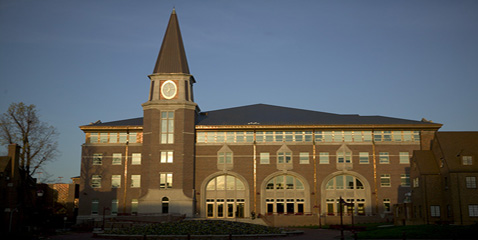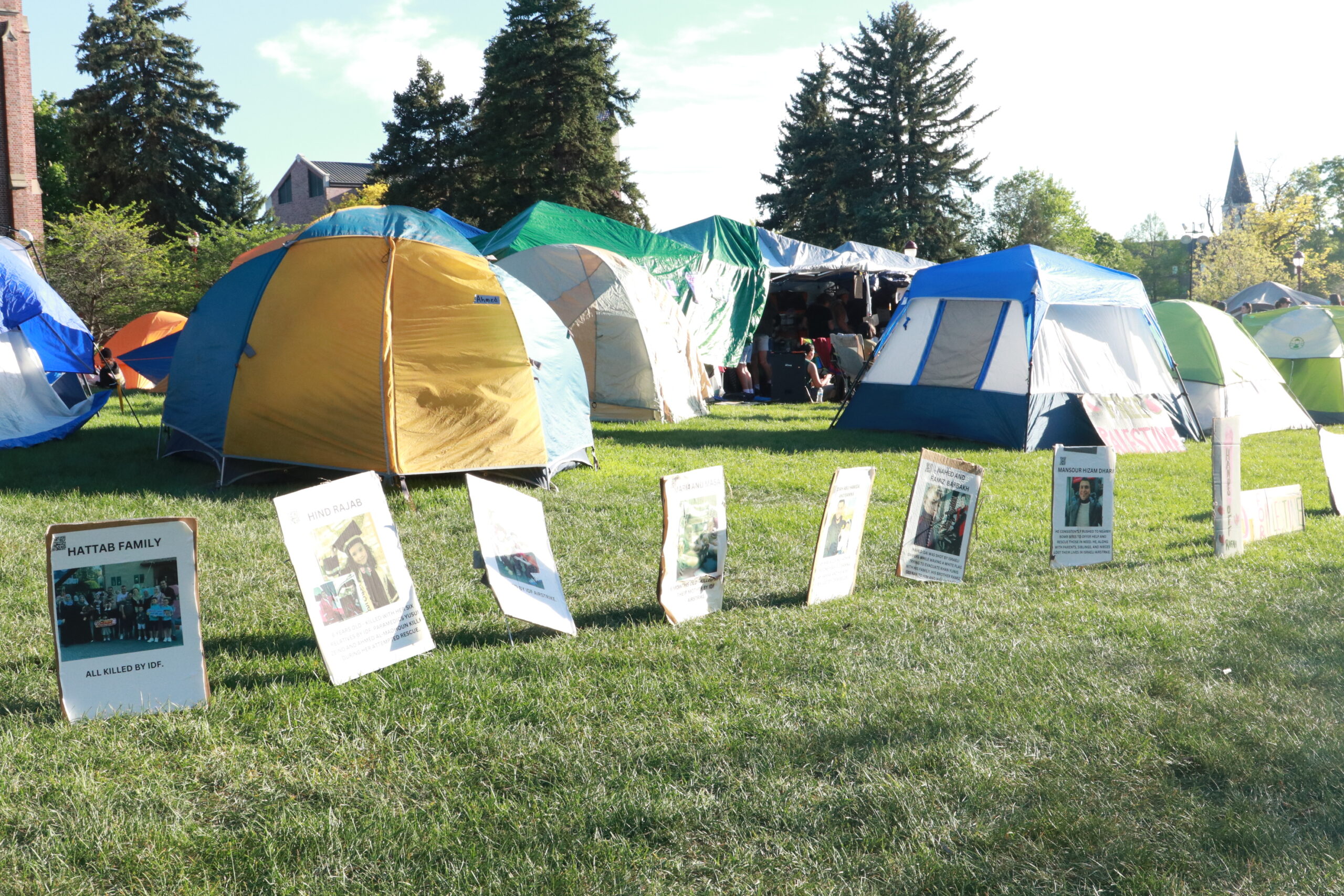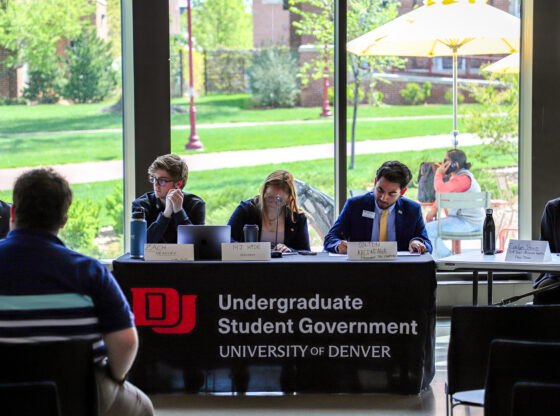Law School Dean Marty Katz gave an update on the state of the law school last Tuesday, in a speech addressing new initiatives and successes in the Sturm College of Law.
New initiatives presented by Katz included the strengthening and expansion of both dual degree programs and post-graduate opportunities.
While the law school has offered other dual degree programs—such as a J.D./MBA combination—for some time, Katz says there is a task force in place this year to help streamline that process as well as several opportunities to get dual degrees with graduate programs at the law school. For example, a student can now receive a J.D. (Juris Doctor) degree and an L.L.M (Master of Laws) specialized degree in topics such as environmental resource management in a dual degree program through the law school, a program that was initiated last summer.
“The concept is that for a lot of you, it makes sense to try to get more education in less time,” said Katz to the law school students present at the update. “We’re going to try to provide as many of those opportunities as possible for you.”
Katz also discussed the recently launched six-year undergraduate and law school dual degree program, in which undergraduate students can finish their bachelor’s degree in three years and proceed to earn their JD in the next two.
Postgraduate opportunities were an important topic at the update, with Katz discussing several initiatives aimed at recently graduated students.
These included the launching of what Katz called a “solo incubator”, which will provide a safety net in the form of financial opportunities for students hoping to open their own solo law practices, the expansion of the law school’s postgraduate fellowship program and the launching of a legal residency program, in which graduates get paid to work for a law firm while gaining experience.
The year-long residency program is modeled after the medical residency program and will allow students to get paid to continue to strengthen their education.
“By the time you’re done with this, you’ve got a solid, very well-mentored experience under your belt, making you pretty competitive,” said Katz.
The residency program is designed to build off of the law school’s dedication to experiential learning, which Katz says was just half of the school’s strategic plan that was developed and implemented in 2009. Katz said the new residency program will be launched this year.
“What we did was try to go out and talk to people who would hopefully be hiring our graduates and ask, ‘What do you need?’ and ‘What is going to make our graduates as marketable as possible?’” said Katz.
From that research, two major initiatives were formed with the launching of the strategic plan in 2009.
The first initiative was the creation of five areas of specialization in topics that would be useful in the job market, including environmental and natural resources law, international law, employment law, governmental law and corporate-commercial law.
The second initiative was the implementation of more experiential learning opportunities. One of these was an experiential advantage program, launched this summer, which allows DU law students to earn 30 of their law credits through experiential learning opportunities.
Katz says both of these initiatives have been very successful thus far.
“We’ve been just thrilled with how each of these initiatives are going,” he said. “We’ve had wonderful support from the faculty.”
Other successes were also discussed. The first was an increase in the DU bar exam passage rates, now at 90 percent, six percent above the national average and one percent above CU’s law school passage rates.
Another was the post-graduation employment rate. Katz said graduates from the law school in 2012 were employed at a rate of 90.4 percent in professional jobs nine months after graduation, which Katz considers a success. However, Katz said only 77 percent of those jobs are full-time, permanent jobs.
“That is not as good as I would like it to be,” said Katz. “We are trying to get more people into those permanent jobs.”
Additionally, Katz discussed the fact that the law school has moved up 24 slots in U.S. News & World Report rankings in the last five years. This improvement puts it at number 64 nationwide.
Other individual programs within the law school also have high rankings, including several in the top 15. Katz points to the 2009 strategic plan’s emphasis on experiential learning for the increase in rankings.
“We made a bet that there would be a market for schools that would provide both excellence and rigor in their education and would also provide experiential learning that would allow its graduates to compete for jobs,” said Katz. “So far that bet seems to be paying off.”
Katz said the law school will continue to work to rise in the rankings and improve its reputation.
“The goal is to do the things we’re doing, do them well, and hope the world notices,” said Katz.











